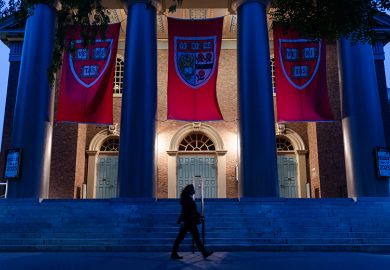Students seeking help after forgetting their password or getting locked out of an IT system hours before an essay is due may be surprised to know their saviour sits in an office in Newcastle.
For almost two decades, a little-known service known as Norman (North East Region Metropolitan Network) based at Northumbria University has fielded enquiries on behalf of universities to ensure IT problems can be addressed out-of-hours.
After rapid expansion in the past five years, it is now used by more than 40 institutions and is being heralded as a potential model for service-sharing in a cash-strapped sector increasingly looking for low-cost ways to collaborate – even meriting a recent mention in Hansard after being name-checked in Parliament by Adam Thompson, the chair of the All-Party Parliamentary University Group during a debate.
Northumbria employs between 30 and 40 people to work on Norman, which generally takes over from in-house IT service desks at the end of the working day, said Simon Corbett, the university’s chief information officer.
It fields calls overnight, dealing with most requests and gathering information on any more serious issues, before handing back over in the morning.
Universities are 24/7 operations, but this type of service was expensive for any one institution to offer alone, said Mr Corbett.
The unpredictable nature of IT issues also means a stand-alone team could either be overrun or have nothing to do on any given night of the week.
“Having a dedicated resource pool that can answer enquiries from multiple universities through the night solves all of these problems,” said Mr Corbett.
He saw potential for expansion, believing Norman could be used by universities as their main IT help service or to cover special projects. It is also increasingly gaining interest abroad and could be used by the further education and school sectors as well. Chatbots to answer questions where a human isn’t needed are being developed alongside partner universities.
For Northumbria, Norman brings added IT expertise and makes the university money. “Where most professional services are just a cost to universities, this one is generating income,” said Mr Corbett.
“An HE provider providing an HE service to the rest of HE is a really nice model; it keeps that money in the sector and allows us to invest for everyone’s benefit.
“We also understand the sector and what people want and what the demands are. We’ve all got similar sorts of issues at the root of everything.”
Register to continue
Why register?
- Registration is free and only takes a moment
- Once registered, you can read 3 articles a month
- Sign up for our newsletter
Subscribe
Or subscribe for unlimited access to:
- Unlimited access to news, views, insights & reviews
- Digital editions
- Digital access to THE’s university and college rankings analysis
Already registered or a current subscriber?








